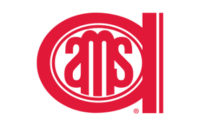The American Meat Science Association (AMSA) has announced that Dr. Matthew Doumit, Professor in Animal and Veterinary Science at the University of Idaho, is the recipient of the 2017 Distinguished Teaching Award. The award was established to recognize excellence in the teaching of undergraduate and graduate meat science courses and the impact on the lives of those students in a highly positive manner. The award is sponsored by Hawkins, Inc. Dr. Doumit will be honored at a special awards banquet at the AMSA 70th Reciprocal Meat Conference on Tuesday, June 20, 2017 in College Station, Texas.
Since joining the University of Idaho in 2008, Dr. Doumit has taught over 1,900 students in courses that include Livestock and Carcass Evaluation, Animal Products, Animal Growth, and Introductory Animal Science. His evaluation and products courses also serve students from Washington State University. Doumit advises more than 30 undergraduates annually, as well as the Block and Bridle and Judging Clubs. Under his leadership, a meat evaluation team was reestablished at the university. Students consistently describe Dr. Doumit as an enthusiastic, knowledgeable and caring teacher.
Prior to taking the position at University of Idaho, Dr. Doumit worked at Michigan State University, teaching Animal Products, Meat Science and Muscle Biology, and Growth Biology. He received his degrees at Washington State University (B.S.), South Dakota State University (M.S.) and Michigan State University (Ph.D.). He completed two years of postdoctoral training in the Meats Research Unit at the U.S. Meat Animal Research Center in Clay Center, Nebraska.
Dr. Doumit and his collaborators have garnered over $3 million to support meat quality and animal growth research. He has published 36 refereed articles, 81 abstracts, 7 invited papers, and a book on livestock and carcass evaluation. In 2011, he received the R.M. Wade Excellence in Teaching Award and was named the Outstanding Academic Advisor in the College of Agriculture and Life Sciences at Idaho in 2014.
Source: AMSA


Report Abusive Comment